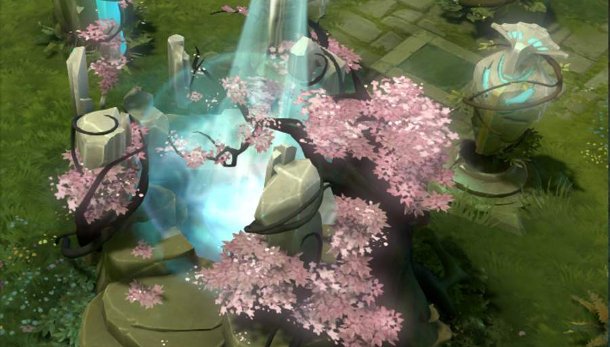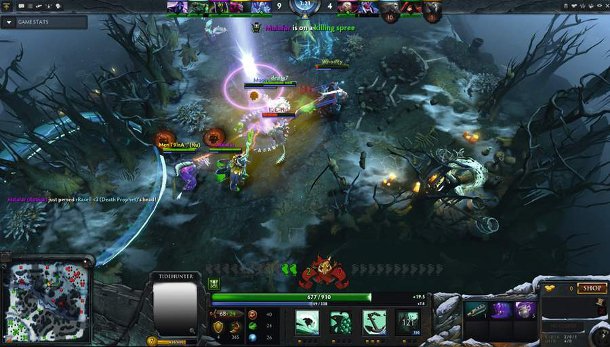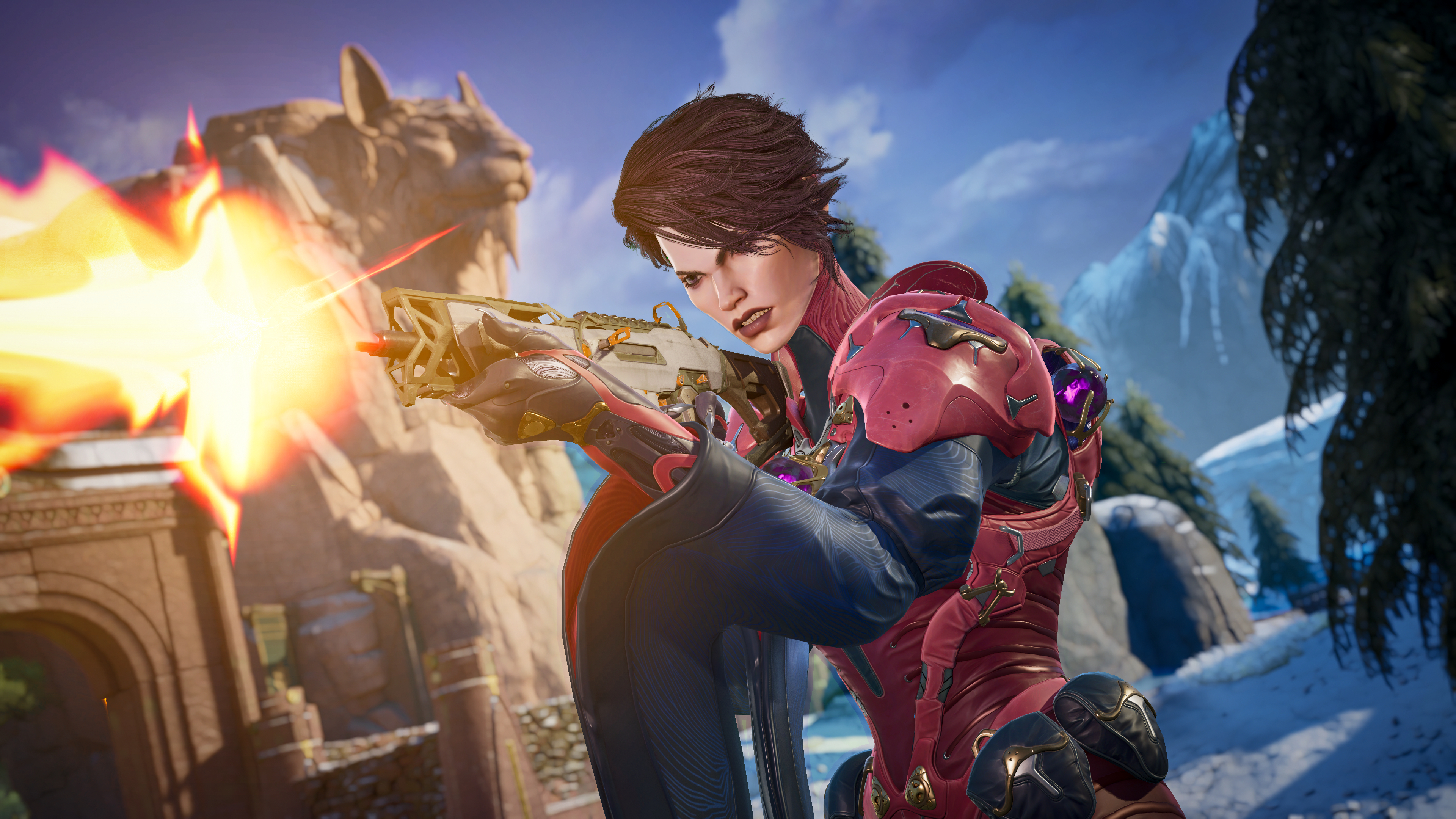Hero's Journey: we visit Valve to get an inside look at the development of Dota 2
Keep up to date with the most important stories and the best deals, as picked by the PC Gamer team.
You are now subscribed
Your newsletter sign-up was successful
Want to add more newsletters?

Every Friday
GamesRadar+
Your weekly update on everything you could ever want to know about the games you already love, games we know you're going to love in the near future, and tales from the communities that surround them.

Every Thursday
GTA 6 O'clock
Our special GTA 6 newsletter, with breaking news, insider info, and rumor analysis from the award-winning GTA 6 O'clock experts.

Every Friday
Knowledge
From the creators of Edge: A weekly videogame industry newsletter with analysis from expert writers, guidance from professionals, and insight into what's on the horizon.

Every Thursday
The Setup
Hardware nerds unite, sign up to our free tech newsletter for a weekly digest of the hottest new tech, the latest gadgets on the test bench, and much more.

Every Wednesday
Switch 2 Spotlight
Sign up to our new Switch 2 newsletter, where we bring you the latest talking points on Nintendo's new console each week, bring you up to date on the news, and recommend what games to play.

Every Saturday
The Watchlist
Subscribe for a weekly digest of the movie and TV news that matters, direct to your inbox. From first-look trailers, interviews, reviews and explainers, we've got you covered.

Once a month
SFX
Get sneak previews, exclusive competitions and details of special events each month!

Valve's take on the DotA formula is faithful to the mod, but it is not a tribute act. “We could change as much as we wanted but a lot of good choices had already been made,” Johnson tells me. “We couldn't convince ourselves that much needed to change.” Instead, Dota 2 is characterised by tweaks and recalibrations: from balance changes to a smarter, more intuitive interface.
In redesigning 108 well-loved heroes for a new game – heroes who were in the first instance based on Blizzard-owned characters – Valve have mixed their own eye for personality with an smart reading of the tastes of DotA players.
"Valve's take on the DotA formula is faithful to the mod, but it is not a tribute act."
“The community had built up so much emotional attachment over the years,” Johnson says. “If you play Dota, your mind's-eye representation of the hero you're playing is pretty fantastic, right? People would talk about that online and it was useful for us to draw on – how heroes should look and sound, what their personality should be.”
As with Valve's science fiction, there's an off-kilter style to Dota 2 that prevents it from feeling too familiar. The team made a conscious effort to draw from sources beyond European mythology, and the roster coheres more by virtue of its careful art direction than the fiction written to support it. It's classy, and with a few exceptions dodges the porny fan-art feel that hinders its rivals, League of Legends and Heroes of Newerth (and the original DotA, to an extent.)
Dota 2 is also very funny. Valve learned from Team Fortress 2 that humour helps to balance the tone of a competitive game, and the way the community talked about each hero in DotA 1 influenced how those characters were written in the sequel. Troll Warlord's backstory is a thinly veiled metaphor for the behaviour of certain types of people in internet comment threads. Earthshaker will occasionally quote directly from legendary punk RPG Barkley, Shut Up and Jam: Gaiden. When he uses his ultimate ability, Tusk has a chance to say any one of 83 recorded variants on the phrase “walrus punch!” Puns abound.
Acknowledging community in-jokes is a deliberate attempt to build trust, Johnson says. “It's a way for us to tell the community that we get it, that we are paying attention, that we are at least as big fans of this thing as you are.”

“Designers here really like Dota as a product,” he continues. “There are subtleties to the design. For example, you have a huge number of heroes but only ten are played at once – that leaves a lot of latitude in the design choices you can make.” It also necessitates a vast amount of playtesting, and that bolsters the need for a close relationship with the community. Dota 2 has been played in a beta form since early 2011, the community beginning as a small group of DotA veterans. It's now the most-played game on Steam.
Keep up to date with the most important stories and the best deals, as picked by the PC Gamer team.
“We all want to work on games that as many people have fun playing as possible,” Johnson says. “It's just riskier to make a product that you're going to spend a lot of time on in secret without showing anyone, versus working right there with the community and seeing their reactions to everything you do. Above all else, we want to feel like our time – which is our most valuable resource – is being spent efficiently.”
"After more than two years of testing, Dota 2 will be formally released later this summer."
It seemed a bit crass to bring up Half-Life 3 this long after the fact – so I didn't – but Johnson's remarks reflect the way that Valve has changed as a company. The things that make Dota 2 a Valve game – a mix of grassroots enthusiasm and exemplary individual talent, reinforced by a love of statistics and crowdsourcing – are all less applicable to the series that made the company's name. These qualities don't contradict one another: Valve's designers seem to enjoy the challenge of working on a competitive game, and gain satisfaction from the surety of movement that their vast amount of crowd-sourced data offers them.
After more than two years of testing, Dota 2 will be formally released later this summer, prior to the International tournament in August. It's likely that the last two heroes to be added to the game before release will be Abaddon – a melee hero with a great deal of utility and survivability – and Legion Commander. Legion's Dota 2 incarnation is possibly the most significant reinvention to date, evolving from a male knight on horseback to a halberd-wielding female foot-soldier with long banners trailing from her armour. Johnson anticipates that the remaining DotA heroes will be added in the months following the International, at which point Valve's long conversion work will be at an end.
The game is ready to drop the 'beta' tag, but there are still questions to be answered. Dota 2 can be punishing, confusing for new players, and flat-out unpleasant from time to time. Valve's solutions to these problems have been practical but tentative – such as community generated in-game guides, a reporting system for player behaviour, and sophisticated matchmaking that takes into account skill level, the amount of people you're playing with, and prior conduct. Yet there are still unflinching orthodoxies in Dota's design – the across-the-board lack of a surrender option, for example – that seem to contradict Valve's assertion that it's possible to please everybody with a sufficiently responsive approach.
Joining in 2011, Chris made his start with PC Gamer turning beautiful trees into magazines, first as a writer and later as deputy editor. Once PCG's reluctant MMO champion , his discovery of Dota 2 in 2012 led him to much darker, stranger places. In 2015, Chris became the editor of PC Gamer Pro, overseeing our online coverage of competitive gaming and esports. He left in 2017, and can be now found making games and recording the Crate & Crowbar podcast.


